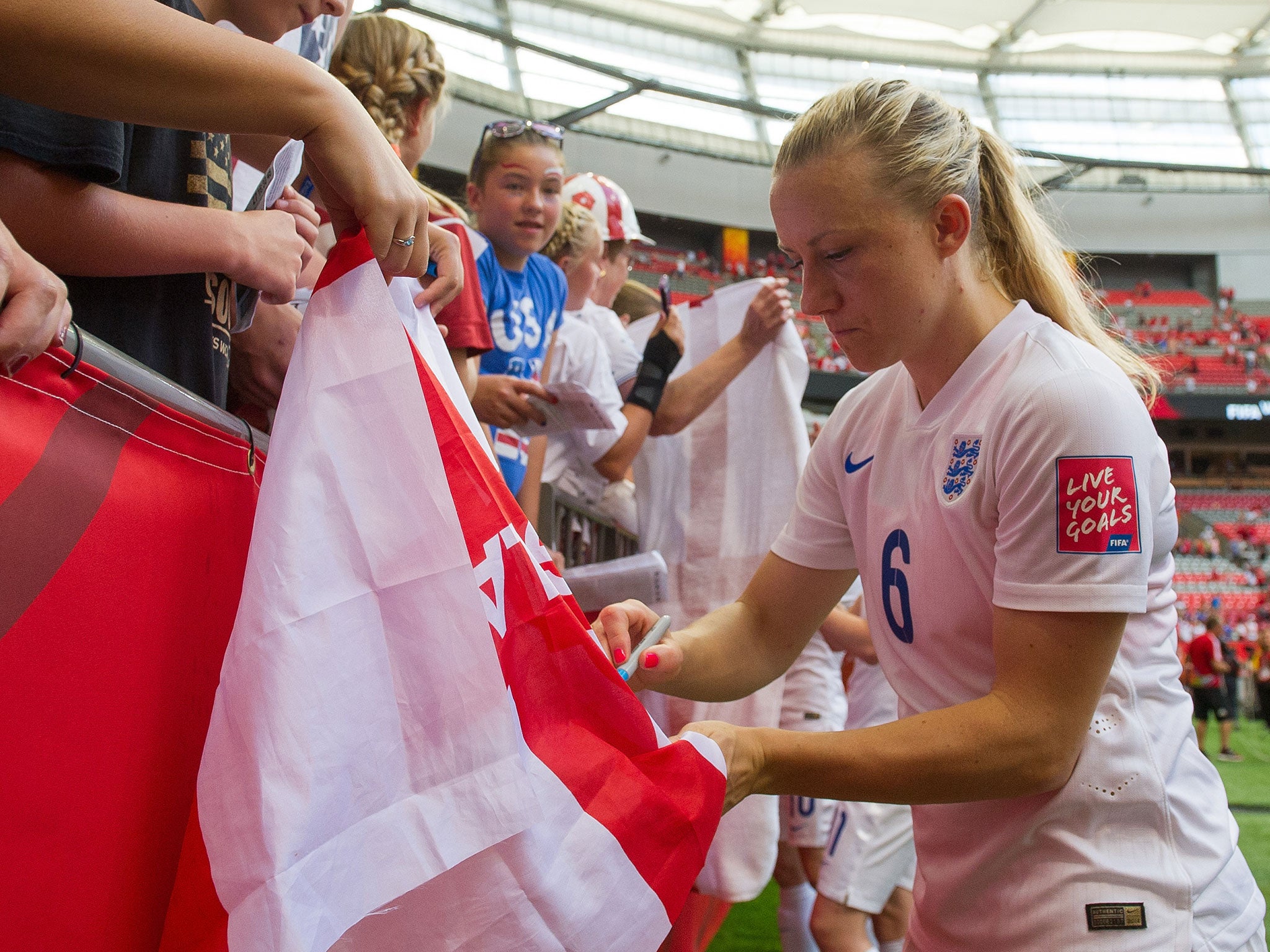Women's World Cup: Despite the England team's tweet, the Lionesses can be mothers and successful football players at the same time
It's not enough for girls to succeed on the pitch, they must succeed in the home too


Your support helps us to tell the story
From reproductive rights to climate change to Big Tech, The Independent is on the ground when the story is developing. Whether it's investigating the financials of Elon Musk's pro-Trump PAC or producing our latest documentary, 'The A Word', which shines a light on the American women fighting for reproductive rights, we know how important it is to parse out the facts from the messaging.
At such a critical moment in US history, we need reporters on the ground. Your donation allows us to keep sending journalists to speak to both sides of the story.
The Independent is trusted by Americans across the entire political spectrum. And unlike many other quality news outlets, we choose not to lock Americans out of our reporting and analysis with paywalls. We believe quality journalism should be available to everyone, paid for by those who can afford it.
Your support makes all the difference.The biggest own goal of the Women's World Cup did not come from Laura Bassett, the Notts County defender who scored the now infamous injury-time own goal that ended England’s hopes of winning the Women's World Cup in Canada.
No, instead, that calamitous glory goes to the people behind the official Twitter feed of the England Football Team, who yesterday tweeted that the Lionesses would be returning to the UK to resume their positions as “mothers, partners and daughters” – apparently relinquishing their roles as professional footballers somewhere over the Atlantic ocean.
Media interest in the recent women’s football tournament had resulted in a huge spike in public interest, raising both awareness and passion for the women’s game. It helped, of course, that the matches were broadcast on the BBC. It also didn't hurt that our Lionesses, who came third in the end, actually stood a chance of winning the competition, which is more than can be said for their male counterparts.
How disappointing then that these star athletes were reduced to sexist stereotypes before they’d even collected their baggage at Heathrow.
Unfortunately, this is nothing new. Women are frequently defined by where they stand in relation to other people (often men), a crime the media are arguably most guilty of. Just look at the coverage of Kim Sears over the course of this year’s Wimbledon tournament to see what I mean.
Even when celebrating female success, reference is always made by the press to a woman's marital status, romantic life, children, and looks. It's not enough for girls to succeed on the pitch, on the stage, or in the boardroom, they must succeed in the home too.
An example: Last month Taylor Swift was described by OK! magazine as “Calvin Harris' rumoured girlfriend”. This is, by the way, the same woman who took on Apple and won. The Grammy Award-winning pop star is astonishingly successful in her own right, but the magazine chose to refer to her as if she were Harris' possession. His rumoured girlfriend. As though being the maybe partner of a famous DJ was her greatest achievement to date.
The same applies to our Lionesses. Given that they’ve proved themselves to be talented footballers, surely we should define them as such. Yesterday's tweet implied the girls would be returning home to their proper roles, that they’d had their fun, and that soon they would be back behind their kitchen sinks where they belong. The thinly veiled suggestion was the women could not be wives, mothers, and successful football players at the same time. This isn’t a restriction applied to their male equivalents, who apparently can be footballers, fathers, and philanderers without issue.
There’s a wider concern here, of course. It's long been assumed women will fill domestic roles such as these: the mother, the wife, the carer. Those who opt out are treated with suspicion. Single women are branded spinsters, a word riddled with ugly subtext. A man in the same position, of course, is a bachelor - a much more appealing noun.
Women who choose not to have children - or who put their career first - are mistrusted, as though they’re not fulfilling their womanly potential. Often they're labelled selfish for choosing not to dedicate their lives to another human being. Because sacrifice is what is expected of a woman. It goes without saying that men don't face similar scrutiny.
I could be generous and say the tweet, which has since been deleted, was poorly-worded. Maybe the team behind it genuinely thought it was celebratory – they did after all concede the Lionesses could add the title “heroes” to their otherwise homely list. They even tried to argue they would have said the same of the men’s team, an assertion I struggle to believe but will be monitoring when the next men's tournament comes around.
Inadvertent sexism is still sexism. Ultimately, the tweet was foolish and ill-advised and has shone a bright light on the way sport, and society, still thinks of women - as supporting characters, rather than protagonists in their own right.
Join our commenting forum
Join thought-provoking conversations, follow other Independent readers and see their replies
Comments